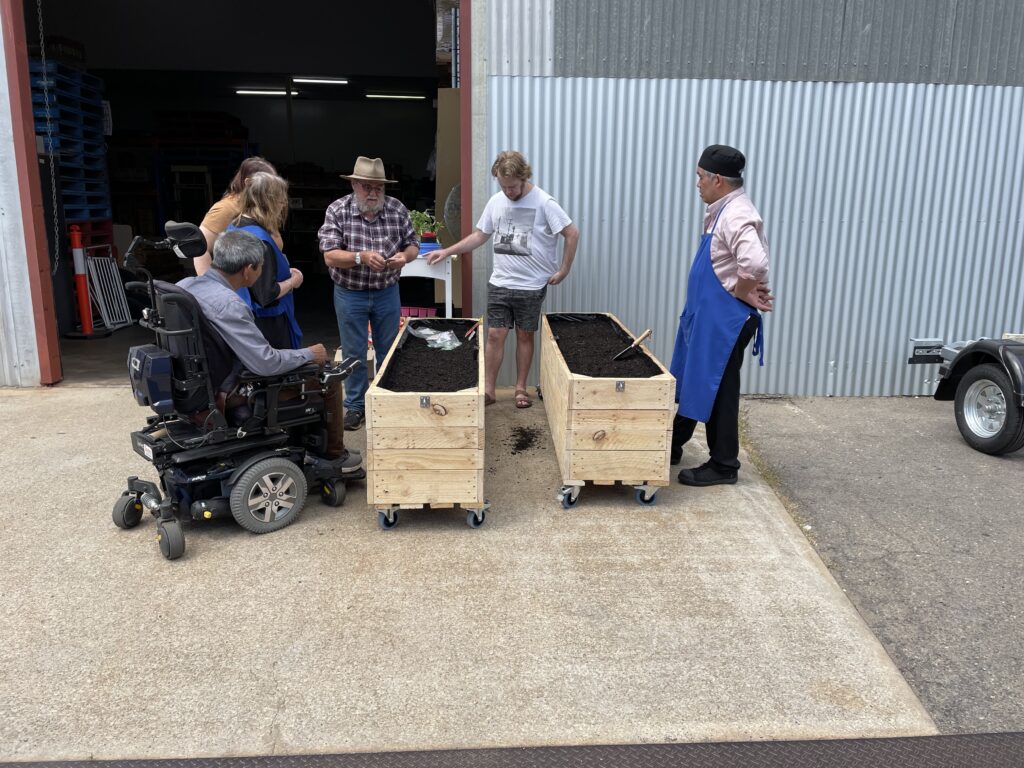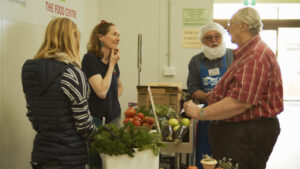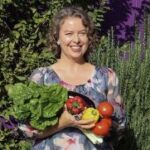
A new model of 'social supermarket' providing affordable food and social supports for people experiencing financial stress in South Australia should be expanded, experts say.
As the cost-of-living crisis affects a growing number of Australians, Flinders University researchers have partnered with State Government and The Food Centre at Enfield to evaluate a new, progressive model for relieving food insecurity while also providing many social benefits.

"After the Christmas break, budgets are often tight which can affect food security and financial stresses for families on low incomes, particularly if volunteer food relief services are on holidays or understaffed," says Dr Tahna Pettman, from the Centre for Social Impact at Flinders University.
"Social supermarkets can provide a stepping stone between emergency food relief and mainstream food retail, and they 'go beyond food' by also providing opportunities for engagement, social support and connections to empower people towards pathways out of food insecurity."
The Food Centre is a not-for-profit supermarket and community organisation founded in 1990 at Gepps Cross. In 2020 it was funded by Wellbeing SA and Department of Human Services SA to be developed as one of Australia's first 'social supermarkets', to offer affordable, nutritious food with co-located social services, supports and opportunities for social connection. It helps more than 600 people every week.
The 'social supermarket' is a progressive model already active in many European countries, with a recent surge in the UK, presenting improved access to affordable food in a retail-like environment. These social supermarket examples usually restrict access with eligibility criteria and rely on surplus food supply.
In the South Australian social supermarket model, however, no eligibility assessment is required and anyone is welcome - as a more dignified way to access affordable food and social connection opportunities.
In the latest research with The Food Centre, Flinders University researchers have determined that this innovative model is very promising, proving it both popular and beneficial for clients. The researchers also collaborated to develop a rubric tool that can be used by existing food provision organisations, to enhance their offerings and become a social supermarket.

Dr Pettman says the social supermarket rubric is immediately useful to other organisations that want to provide an expanded social enterprise model of providing affordable, nutritious food. This can assist people experiencing financial stress in our community, which is often delivered by food relief providers, community centres, social enterprises, or community-owned supermarkets.
"Robust evaluation of progressive models like this is needed - this is especially important given ongoing effects of inequities, including insufficient welfare payments and wage growth, costs of living, and insecure work, which are entrenching chronic needs for food relief."
"The community sector performs an important function in providing emergency food relief, yet food insecurity is often a chronic issue, due to poverty and social exclusion," says study coauthor Professor Svetlana Bogomolova, deputy director of the Centre for Social Impact at Flinders University's College of Business, Government and Law.
"There are consistent calls for greater dignity, choice, and 'customer culture' in the community sector, and a need to evolve voluntary service models to improve experiences, meet community needs, and enable sharing, trust, and reciprocity."







